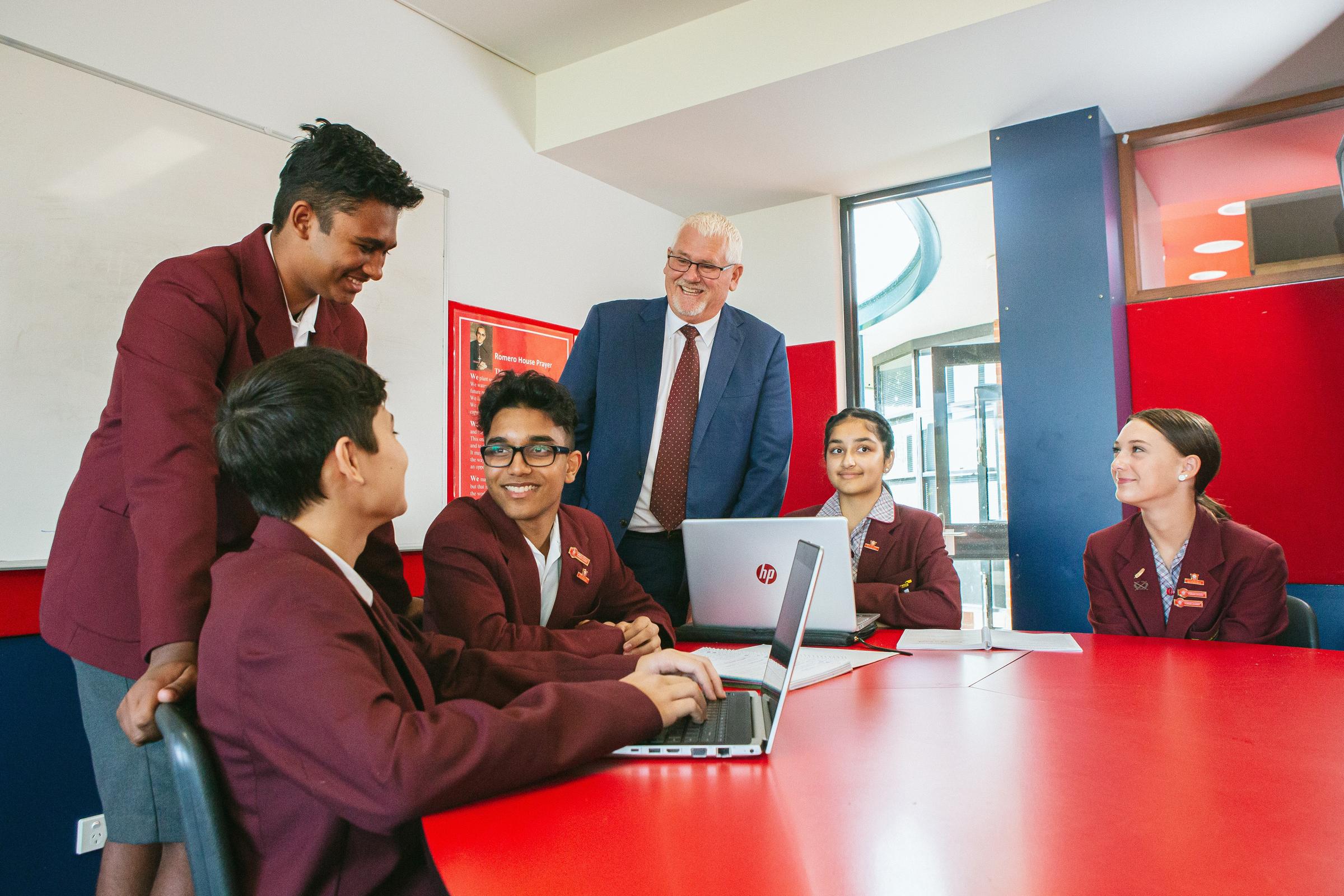Learning & Teaching News

Examinations a Time for Reflection
Over the last few weeks, our Year 10 and 11 students have been undertaking their examinations. This provided them with an opportunity to put into practice all their hard work and test their own skills under strict examination conditions. By all reports the students took the process seriously and their behaviour was excellent. Practice examinations offer a personal point of reflection for our students.
But points of reflection like formal examination should not be the only moment for reflection. With the use of our Criterion Reference Frameworks (CRFs) moments of reflection can happen more consistently. These CRFs allow students to reflect on their own growth and development at multiple points within a subject. Furthermore, it gives students time, with the assistance and support of their teacher, to improve their own work.
Embracing a Growth Mindset with CRFs
The use of CRFs not only aids in academic reflection but also plays a crucial role in fostering a growth mindset among our students. A growth mindset is the belief that abilities and intelligence can be developed with effort, learning, and perseverance. This approach aligns perfectly with the principles of our CRFs, which emphasise continuous improvement and self-assessment.
Our CRFs are designed to support this growth mindset by providing clear, criterion-based feedback on student performance. This helps students to:
- Identify Strengths and Areas for Improvement: CRFs give detailed insights into what students are doing well and where they need to focus their efforts. This targeted feedback encourages students to approach their learning with a problem-solving attitude.
- Set Realistic and Achievable Goals: With the guidance of CRFs and their teachers, students can set specific, measurable goals for their improvement. This goal-setting is a key component of maintaining a positive and proactive mindset.
- Reflect on Progress: Regular reflection using CRFs helps students see their progress over time. Celebrating small wins along the way boosts their confidence and reinforces the belief that they are capable of growth and improvement.
- Engage in Constructive Self-Assessment: By engaging with CRFs, students learn to critically assess their own work against established criteria. This self-assessment promotes a deeper understanding of their learning process and fosters a sense of ownership over their education.
The Power of "Yet"
One of the most powerful concepts teachers can promote and students can learn through the use of CRFs is the power of "yet." Instead of students saying, "I can't do this," they should be encouraged to say, "I can't do this yet." This small but significant shift in language reflects a larger shift in thinking—from a fixed mindset to a growth mindset. The power of "yet" instils resilience and motivates students to persist through challenges, understanding that skills and understanding will develop over time with continued effort. Therefore, when reflecting on their own exam results, students should be thinking what can’t I do “yet”.
The Hope of Future Success
While practice examinations are important milestones in a student's academic journey, it is the ongoing reflection and continuous improvement within the classroom that can lead to better examination results in the future. By consistently using CRFs, students develop a habit of self-evaluation and goal setting, which enhances their learning and retention of knowledge. Regular reflection ensures that students are not only prepared for their exams but are also building a strong foundation of skills and understanding that will serve them well throughout their educational journey and beyond.
David Hansen
Deputy Principal – Learning &Teaching.
